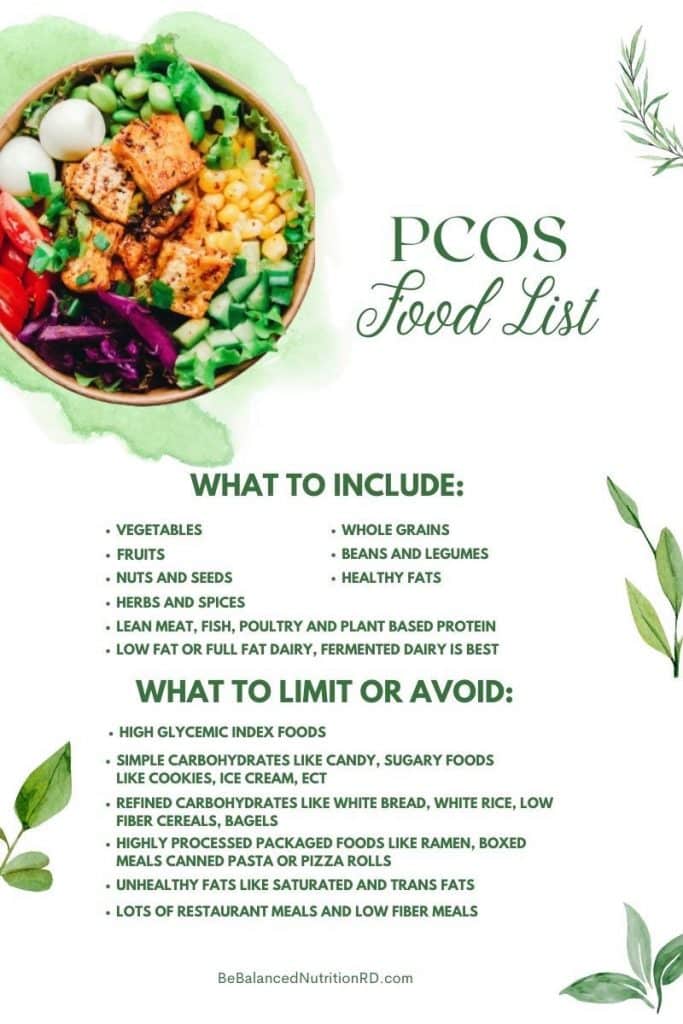As a society, we are gaining more knowledge around Polycystic Ovary Syndrome (PCOS) to understand women’s reproductive health better. Women are becoming empowered to conquer conditions like these through research and education. PCOS occurs when there is a hormonal imbalance affecting the ovaries. Any woman of childbearing age can develop this condition. PCOS is one of the leading causes of infertility, and several other complications like type 2 diabetes, high cholesterol and heart disease. Symptoms present differently for each woman, making diagnoses challenging. However, recognizing an imbalance is the best way to advocate for proper diagnosis, treatment and knowledge to live the life you desire!
Symptoms of PCOS
Because there are so many different contributing factors to PCOS, symptoms will vary depending on the woman. At least two of the following symptoms must be present to make a diagnosis:
- Irregular periods or amenorrhea (the absence of a period)
- Excess facial hair growth
- Severe acne
- Weight gain
- Polycystic ovaries (cysts on ovaries)
What causes PCOS?
Although the exact cause of PCOS is unknown, there are many contributing factors, such as excess androgens (male hormone), insulin resistance, or inflammation. Lets break this down:
- If there is too much production of the male hormone, androgen, women may experience hirsutism (excess facial hair growth) and severe acne. Excess male hormone levels lead to irregular ovulation, causing infertility. When eggs are not being released regularly, immature follicles form on the ovaries, commonly referred to as “polycystic ovaries.” The cysts may cause pain, such as aching and cramping.
- Normally, the pancreas releases insulin to lower blood sugar levels. In women with PCOS, cells become resistant to the action of insulin and blood sugar levels rise. More insulin is produced as a result. Over time, the bodies inability to use insulin properly causes more androgens to be released, leading to irregular ovulation and infertility. If a woman is not physically active, the risk of insulin resistance increases. Learn more here.
- Low-grade inflammation in women with PCOS is determined using blood tests–higher levels of certain inflammatory markers have been reported. Why does inflammation occur? It’s the body’s natural response to threats like injuries and illnesses. Although it’s a mechanism meant for protection, chronic inflammation can be problematic.
Moving Forward After Diagnosis
Lifestyle choices focused on a nutritious diet and exercising regularly can be healing for the body. Oftentimes, women who eat diets high in fat and simple carbohydrates are at risk for developing PCOS. Cutting out refined sugar and carbs like white bread, pasta, white rice, rice cakes, and low fiber foods is a great place to start. Avoid artificial sweeteners and drinks that would rapidly increase blood sugar levels. Women should gift their body the proper nutrients to support the immune system and hormone levels. Diet and exercise adjustments help with weight loss, and prevent any further complications like diabetes and obesity.
Furthermore, there are many different types of medicine that treat PCOS. Conventional treatments include medications like birth control, and diabetic and fertility medications–specifically Metformin and Clomid.
Chinese medicine believes at the root of PCOS is a kidney and spleen deficiency which causes a “dampness” in the body. This type of medicine uses acupuncture and herbal remedies to help regulate the menstrual cycle, improve digestion, dissolve cysts, and promote ovulation. The goal of acupuncture is to unblock stagnant energy. Typically, at least three months of continuous treatment is necessary to see results.
Healing hormonal imbalances is necessary when facing this condition. PCOS symptoms are uncomfortable but they don’t have to be permanent. Educating women on how to diet, exercise, and consistently advocate for themselves will bring the body into a state of harmony and empowerment.

“My name is Ellie and I am a Registered Nurse and freelance writer. When I am not writing, I am working as a PACU nurse, recovering patients from surgery. A large part of my job is educating people on their bodies, and the necessary steps to promote healing. For as long as I can remember, I have had a strong passion for women’s health and have always asked questions around this topic. A big goal of mine was to help educate as many women as possible about their bodies, and that is when I stumbled across Hopeful Mama Foundation. The mission and goals of this foundation aligned perfectly with mine, allowing me the opportunity to help so many women with their fertility journey. I truly believe knowledge is power, and I hope my blogs will reflect that!”
The views and opinions expressed are those of the authors and do not necessarily reflect the official policy or position of the Hopeful Mama Foundation. Our authors provide content that reflects their opinions and does not intend to malign any religion, ethnic group, club, organization, company, or individual.


